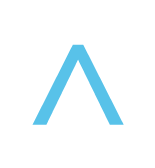 amayrashah15屋友
amayrashah15屋友Online Offline
文章數 : 87
紀由幣 : 0
注冊日期 : 2023-04-03
 Security and Compliance in the Healthcare CRM Market
Security and Compliance in the Healthcare CRM Market
周五 9月 22, 2023 6:10 pm
In today's rapidly evolving healthcare landscape, Customer Relationship Management (CRM) has become a critical tool for healthcare organizations. Healthcare CRM software is designed to manage and nurture relationships with patients, streamline operations, and enhance overall care delivery. To gain a deeper understanding of this dynamic field, let's explore the key trends and insights shaping the Healthcare CRM Market.
1. Patient-Centric Approach
One of the most significant trends in the Healthcare CRM Market is the shift towards a patient-centric approach. Patients are no longer passive recipients of care but active participants in their health management. CRM solutions are being used to empower patients by providing them with personalized health information, appointment reminders, and opportunities for two-way communication with healthcare providers. This trend aligns with the broader industry movement towards value-based care and improved patient engagement.
2. Integration of Data Analytics
Data is the lifeblood of healthcare CRM. Advanced data analytics tools are being integrated into CRM systems to provide valuable insights into patient behaviors, preferences, and healthcare trends. This data-driven approach helps healthcare providers make informed decisions, identify high-risk patients, and tailor interventions to individual needs. Predictive analytics, in particular, is being used to forecast patient needs and improve preventive care measures.
3. Telehealth Integration
The COVID-19 pandemic accelerated the adoption of telehealth services, and this trend continues to shape the Healthcare CRM Market. CRM software is being integrated with telehealth platforms to facilitate virtual consultations, appointment scheduling, and remote patient monitoring. This integration enhances the patient experience by providing convenient access to care and ensuring continuity of care delivery.
4. Enhanced Security and Compliance
As healthcare CRM systems handle sensitive patient information, security and compliance are paramount. The market is witnessing a growing emphasis on robust security measures to protect patient data and ensure compliance with regulations like the Health Insurance Portability and Accountability Act (HIPAA). This includes encryption, access controls, and regular security audits to safeguard patient privacy.
5. Mobile CRM Solutions
The ubiquity of smartphones has led to the rise of mobile CRM solutions in the Healthcare CRM Market. Mobile apps allow healthcare providers to access patient information, update records, and communicate with patients on the go. This flexibility improves care coordination and enhances the patient experience by providing real-time access to critical information.
6. Personalization and Engagement
Personalization is a key driver of patient engagement. CRM systems are leveraging AI and machine learning to personalize patient interactions, offering tailored health recommendations, medication reminders, and follow-up care instructions. This not only improves patient satisfaction but also contributes to better health outcomes.
7. Value-Based Care Initiatives
Healthcare organizations are increasingly shifting towards value-based care models, where reimbursement is tied to patient outcomes and quality of care. Healthcare CRM systems play a vital role in supporting these initiatives by helping providers track and measure patient outcomes, monitor population health, and identify areas for improvement.
In conclusion, the Healthcare CRM Market is experiencing a transformative phase driven by patient-centric care, data analytics, telehealth integration, and enhanced security measures. As healthcare continues to evolve, CRM solutions will remain at the forefront of improving patient experiences, optimizing operations, and driving better healthcare outcomes. The healthcare CRM market was estimated at US$ 14.5 billion in 2021 and is expected to grow at a CAGR of 8.53% during 2022-2028 to reach US$ 25.83 billion in 2028. Healthcare organizations that embrace these trends are well-positioned to thrive in this dynamic landscape.
1. Patient-Centric Approach
One of the most significant trends in the Healthcare CRM Market is the shift towards a patient-centric approach. Patients are no longer passive recipients of care but active participants in their health management. CRM solutions are being used to empower patients by providing them with personalized health information, appointment reminders, and opportunities for two-way communication with healthcare providers. This trend aligns with the broader industry movement towards value-based care and improved patient engagement.
2. Integration of Data Analytics
Data is the lifeblood of healthcare CRM. Advanced data analytics tools are being integrated into CRM systems to provide valuable insights into patient behaviors, preferences, and healthcare trends. This data-driven approach helps healthcare providers make informed decisions, identify high-risk patients, and tailor interventions to individual needs. Predictive analytics, in particular, is being used to forecast patient needs and improve preventive care measures.
3. Telehealth Integration
The COVID-19 pandemic accelerated the adoption of telehealth services, and this trend continues to shape the Healthcare CRM Market. CRM software is being integrated with telehealth platforms to facilitate virtual consultations, appointment scheduling, and remote patient monitoring. This integration enhances the patient experience by providing convenient access to care and ensuring continuity of care delivery.
4. Enhanced Security and Compliance
As healthcare CRM systems handle sensitive patient information, security and compliance are paramount. The market is witnessing a growing emphasis on robust security measures to protect patient data and ensure compliance with regulations like the Health Insurance Portability and Accountability Act (HIPAA). This includes encryption, access controls, and regular security audits to safeguard patient privacy.
5. Mobile CRM Solutions
The ubiquity of smartphones has led to the rise of mobile CRM solutions in the Healthcare CRM Market. Mobile apps allow healthcare providers to access patient information, update records, and communicate with patients on the go. This flexibility improves care coordination and enhances the patient experience by providing real-time access to critical information.
6. Personalization and Engagement
Personalization is a key driver of patient engagement. CRM systems are leveraging AI and machine learning to personalize patient interactions, offering tailored health recommendations, medication reminders, and follow-up care instructions. This not only improves patient satisfaction but also contributes to better health outcomes.
7. Value-Based Care Initiatives
Healthcare organizations are increasingly shifting towards value-based care models, where reimbursement is tied to patient outcomes and quality of care. Healthcare CRM systems play a vital role in supporting these initiatives by helping providers track and measure patient outcomes, monitor population health, and identify areas for improvement.
In conclusion, the Healthcare CRM Market is experiencing a transformative phase driven by patient-centric care, data analytics, telehealth integration, and enhanced security measures. As healthcare continues to evolve, CRM solutions will remain at the forefront of improving patient experiences, optimizing operations, and driving better healthcare outcomes. The healthcare CRM market was estimated at US$ 14.5 billion in 2021 and is expected to grow at a CAGR of 8.53% during 2022-2028 to reach US$ 25.83 billion in 2028. Healthcare organizations that embrace these trends are well-positioned to thrive in this dynamic landscape.

 查看上一個
查看上一個這個論壇的權限:
您 無法 在這個版面回復文章




